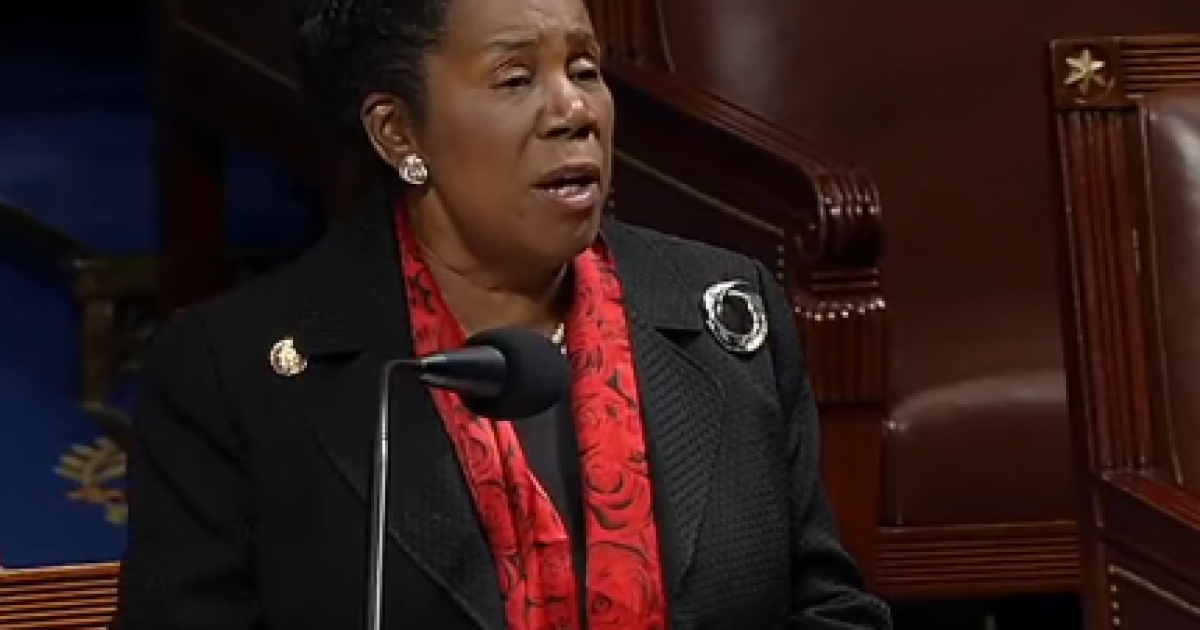
Texas Congresswoman Sheila Jackson Lee was “stunned” by President Donald Trump’s latest budget proposal.
She specifically took issue with certain work requirements tied to certain welfare programs. She believes this program would hurt poor people and renew “the long belief that poor people, particularly African-Americans and now immigrants and others, are lazy.”
“Congresswoman, that is ridiculous,” Acting Office of Management and Budget Director Russell Vought told her during a hearing of the House Budget Committee last Wednesday, February 12, 2020.
Jackson Lee asserted that Trump’s proposal “is not about an investment in America’s future. This is a destructive document for ending America’s future, particularly as it relates to the question of investing in all of the people in this country.”
Jackson Lee grumbled about “cuts.” However, Susan Jones noted that “some of them not actual cuts, but reductions in the growth of spending — to Medicare, Medicaid, medical research, education, and FEMA.”
“I’m stunned. I’m stunned at the lack of sensitivity to what this country needs,” Jackson Lee stated.
The congresswoman continued her rant:
And then finally, I’m further stunned…that all that it seems to be geared toward is to ensure that the most vulnerable people in this country get the short end of the stick.
Let me share some information with you very quickly from the Center for the Study of Social Policy’s “The Racist Roots of Work.” Work requirements do not support work. They harm families.
The most basic part of it, in the years since Temporary Assistance for Needy Families, welfare, mandated work for families receiving cash assistance, hundreds of thousands of families have been left with less than $2.00 a day of cash in America.
When Arkansas and other states have begun to implement work requirements in Medicaid, thousands of people have lost their health insurance. This spring, over 700,000 people will likely lose food assistance as states begin to implement the Trump administration’s expanded SNAP time limit.
And what they’re gearing it toward is that, in slavery, they began to characterize the descendants of enslaved Africans as lazy. That’s all the stereotypes. And there were laws put in place that if you were picking cotton, you couldn’t get assistance. And so, this document is trying to uproot the long belief that poor people, particularly African-Americans and now immigrants and others, are lazy.
This budget clearly emphasizes that unfortunately racially-charged direction in cutting Medicaid, in cutting nutrition programs, in cutting housing.
“Congresswoman, that is ridiculous,” Vought said while interrupting her rant.
Vought then tried to explain that President Bill Clinton, a Democrat, signed off on welfare reform, including work requirements, during the 1990s.
Jackson Lee contended that there’s no evidence that work requirements boost employment. “In addition, how do you justify a budget like this, that is full with the–how should I say it? It’s full with the highway of damaged human beings, and you continue to do so with this destructive domestic cuts budget,” she said.
Once he got a chance to reply, Vought told the committee, “Congresswoman, President Clinton signed into law historic legislation to reform welfare that had a work requirement in the TANF program, and it led to historic drops in caseload. Why? Because people were getting off of welfare and getting onto the ladder of economic opportunity.”
Jackson Lee told Vought, “You’re doing nothing to reduce the deficit except on the backs of children, poor mothers, elderly, and the disabled. It’s shameful. Those who seek an opportunity, that can–they can then provide for the greatness of this country. I’m stunned. I yield back, Mr. Chairman.”
The Texas congresswoman is among the most demagogic members of the U.S. House.
Although Trump’s budget is not ideal from a fiscally conservative perspective, any cuts to welfare spending are welcome.
Sooner or later, the U.S. government will have to get its fiscal house in order.



